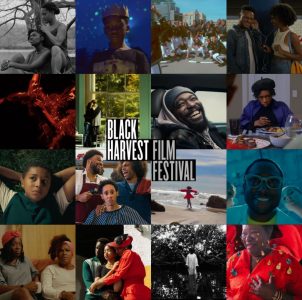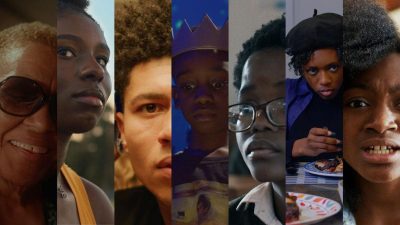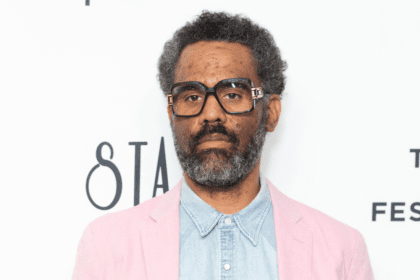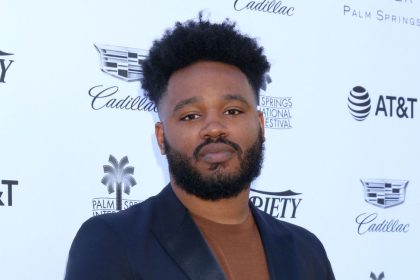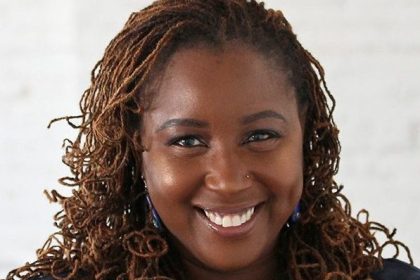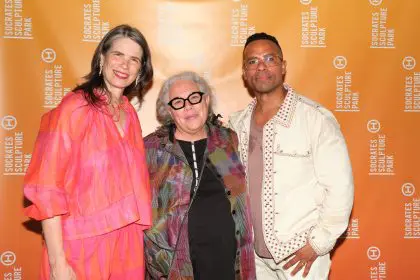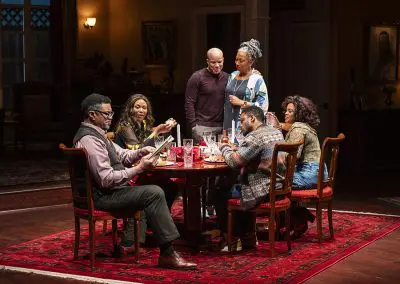The Black Harvest Film Festival is celebrating 30 years of centering Black filmmaking and filmmakers. The festival is running from Nov. 8 -21 at the Gene Siskel Film Center. New genres artist, curator and cultural worker Jada-Amina is going into her second year of curating the festival. Rolling out spoke with Jada-Amina about the 30th anniversary of the festival, what people can expect and the festival’s impact on the community.
This year marks the 30th anniversary of the Black Harvest Film Festival. How are you approaching curation to make this milestone year truly special for the audience?
The Black Harvest Film Festival is older than me. With that, there’s a task that I am responsible for speaking to its history, the breadth of its work and life thus far and also considering its future. In approaching [and] curating, so much of it has to do with acknowledging, celebrating [and] uplifting its history, … looking toward the future through emerging filmmakers and their films, and just being expansive and thinking about what Blackness is and what Blackness should be in the realm of cinema.
Are there any particular films or filmmakers featured this year that you’re especially excited to share with the audience?
We will be showing a couple of repertory films, one of which is The Spook Who Sat By The Door. That is a film that truly speaks to the Black Liberation movement. I just finished writing my synopsis on that today and almost shed a tear. Truly a film [that] came out in 1973 and really speaks to not only what is happening on the national stage, but keeping in mind that this is a film that is taking place in Chicago in a post-1968, Chicago. We don’t have Martin; we don’t have Malcolm; we don’t have Fred Hampton. What are we to do with that? I think that it’s such a powerful testament to the way Chicagoans — Black Chicagoans specifically — mobilized. At a time like 1973, for our city to be presented in that way is extraordinary, and I’m so excited to have it in the festival lineup.
What role do you believe Black cinema plays in archiving and celebrating the nuances of Black life across space and time?
Aspirationally, it’s everything. And I say aspirationally because we know that there are also images being produced of Black folks that I hope do not stand the test of time. I say that as a person who is approaching cultural work through the lens of anti-respectability. I think that there is a space for Black people to be as free as we want to be. Blackness is not a monolith.
What impact do you hope this year’s festival has on the community?
I’m hoping that folks come out and bear witness to the films and also to one another. It is truly an opportunity to fellowship and commune with one another around Black beauty and Black images. We have three phenomenal jurors, including Julie Dash, renowned for Daughters of the Dust; Robert Daniel of Roger and Ebert, who is a phenomenal film critic here in the city; and Raven Jackson, who is the director, the brain, the heart behind All Dirt Roads Lead to Salt. Additionally, … there’s an $1,000 short film prize and a $2,500 feature film prize. Additionally, this year we are closing our Sergio Mims Prize for Excellence in Black Filmmaking, which will be awarding $5,000 to a local Chicago filmmaker. So beyond the sentimentality, there’s also some real money to be had, and that’s very important. That’s what we need. We’re feeding the people beyond just the artistic splendor. There’s also some economic value to be had in this space.
Get tickets to this year’s festival here.


